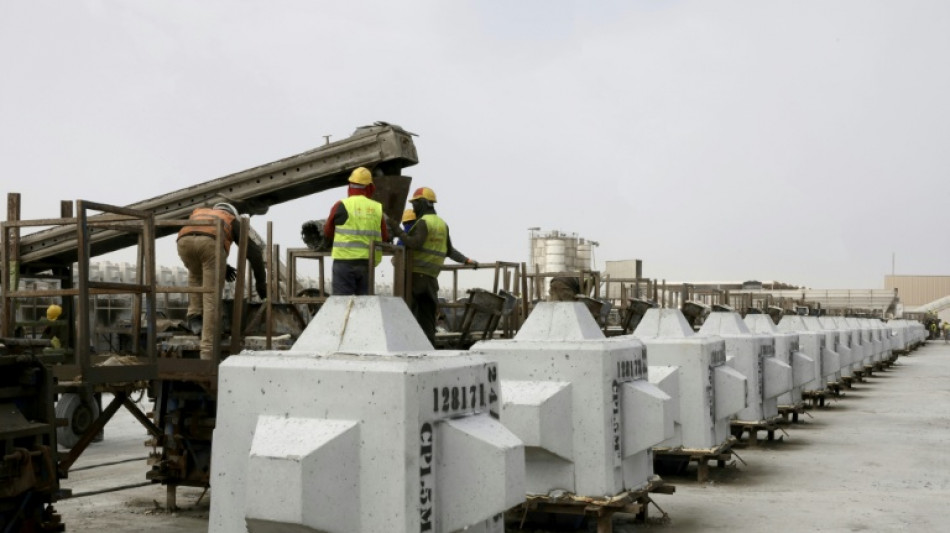
-
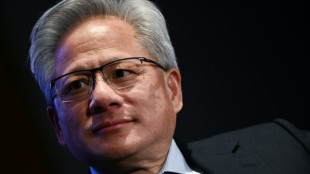 Strength in Nvidia, Apple helps lift US equities to new records
Strength in Nvidia, Apple helps lift US equities to new records
-
Man City 'keeper Donnarumma says would have stayed at PSG
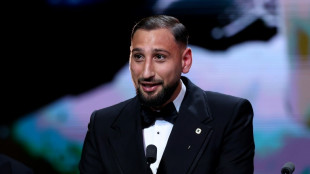
-
 49ers ace Bosa to miss season after knee injury: reports
49ers ace Bosa to miss season after knee injury: reports
-
Canada wildlife decline 'most severe' in decades: WWF
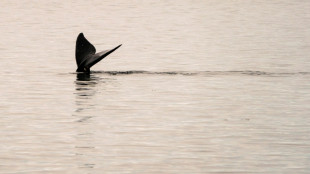
-
 PSG star Dembele wins men's Ballon d'Or
PSG star Dembele wins men's Ballon d'Or
-
Napoli beat battling Pisa to maintain perfect Serie A start

-
 Spain's Aitana Bonmati wins Women's Ballon d'Or
Spain's Aitana Bonmati wins Women's Ballon d'Or
-
Jimmy Kimmel show to return Tuesday: Disney
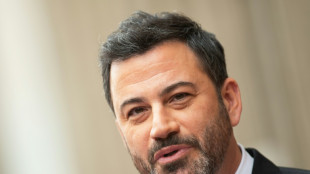
-
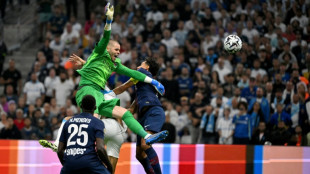 Marseille inflict first defeat of season on PSG in Ligue 1
Marseille inflict first defeat of season on PSG in Ligue 1
-
White House promises US-controlled TikTok algorithm
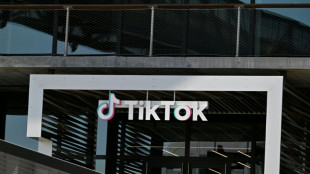
-
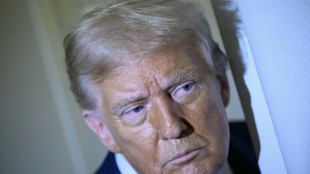 Trump expected to tie autism risk to Tylenol as scientists urge caution
Trump expected to tie autism risk to Tylenol as scientists urge caution
-
Macron recognizes Palestinian state at landmark UN summit
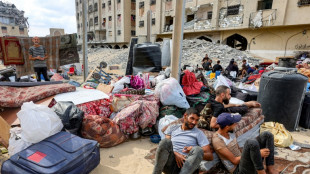
-
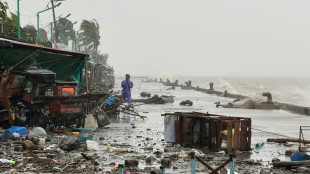 Hong Kong prepares for 'serious threat' from Super Typhoon Ragasa
Hong Kong prepares for 'serious threat' from Super Typhoon Ragasa
-
S. Korea court issues arrest warrant for Unification Church leader: Yonhap

-
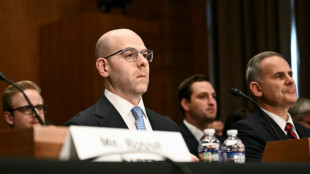 New US Fed governor says rates should be around 'mid-2%'
New US Fed governor says rates should be around 'mid-2%'
-
14 killed as rival Ecuadoran inmates fight with guns, explosives
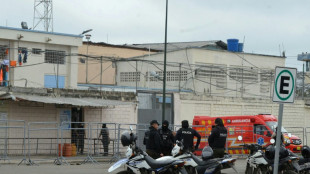
-
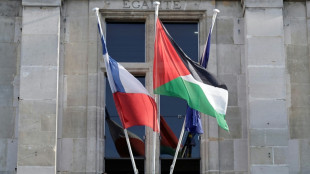 Dozens of French towns flout government warning to fly Palestinian flag
Dozens of French towns flout government warning to fly Palestinian flag
-
Nvidia to invest up to $100 bn in OpenAI data centers

-
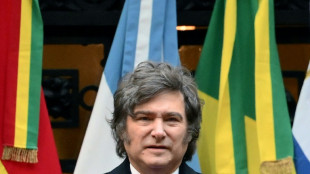 US mulls economic lifeline for ally Argentina
US mulls economic lifeline for ally Argentina
-
France to recognize Palestinian state at contentious UN
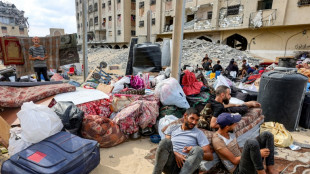
-
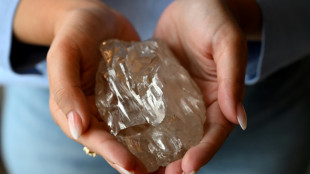 Museum or sheikh? World's second largest diamond awaits home
Museum or sheikh? World's second largest diamond awaits home
-
UK charities axe Prince Andrew's ex-wife over Epstein email
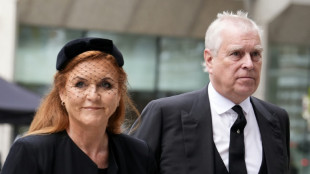
-
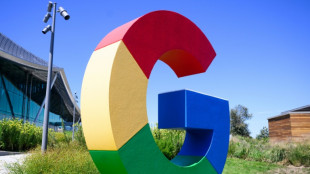 Google fights breakup of ad tech business in US court
Google fights breakup of ad tech business in US court
-
US pleads for new beefed-up multi-national force in Haiti
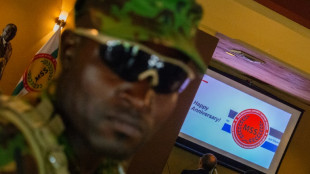
-
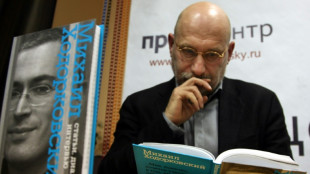 'Don't repeat our mistakes' - Russian writer Akunin warns against creeping repression
'Don't repeat our mistakes' - Russian writer Akunin warns against creeping repression
-
Jews flock to Ukraine for New Year pilgrimage despite travel warning

-
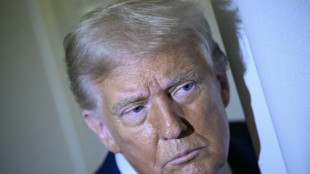 Trump autism 'announcement' expected Monday
Trump autism 'announcement' expected Monday
-
Over 60,000 Europeans died from heat during 2024 summer: study
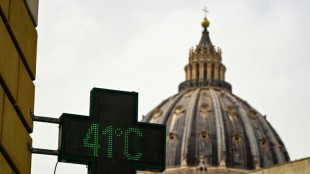
-
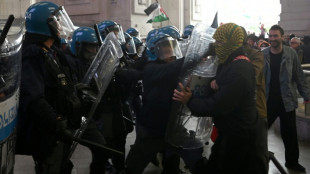 Clashes as tens of thousands join pro-Palestinian demos in Italy
Clashes as tens of thousands join pro-Palestinian demos in Italy
-
UK charity axes Prince Andrew's ex-wife over Epstein email
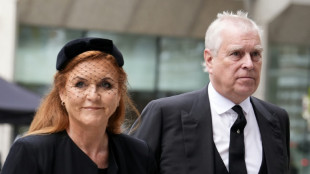
-
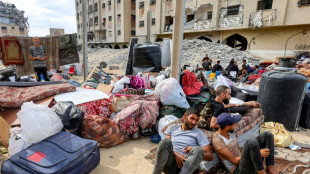 France, others to recognize Palestinian state at UN
France, others to recognize Palestinian state at UN
-
IAEA says Iran nuclear diplomacy at a 'difficult juncture'
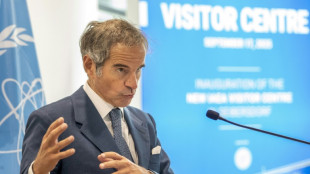
-
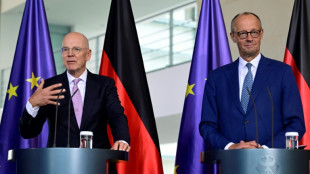 Merz tasks banker with luring investment to Germany
Merz tasks banker with luring investment to Germany
-
Russia offers to extend nuclear arms limits with US by one year
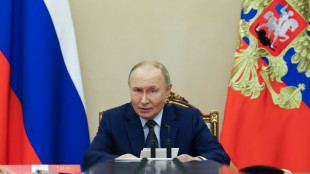
-
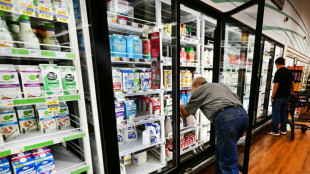 Stocks turn lower ahead of key US inflation data
Stocks turn lower ahead of key US inflation data
-
Gavi to undergo knee operation on meniscus injury: Barcelona
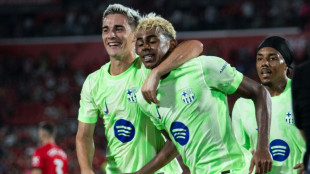
-
 Frenchman denies killing wife in case that captivated France
Frenchman denies killing wife in case that captivated France
-
Bavuma out of Test series in Pakistan as De Kock back for ODIs
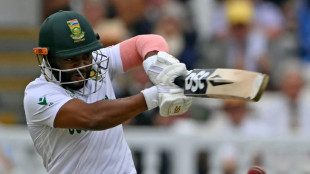
-
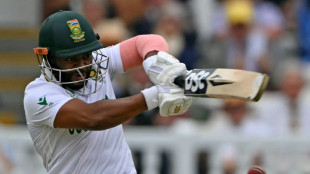 Bavuma out of Test series as De Kock back for white-ball games
Bavuma out of Test series as De Kock back for white-ball games
-
French town halls defy government warning to fly Palestinian flags
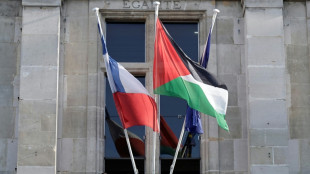
-
 French zoo returns poorly panda and partner to China
French zoo returns poorly panda and partner to China
-
IEA feels the heat as Washington pushes pro-oil agenda
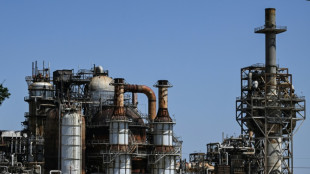
-
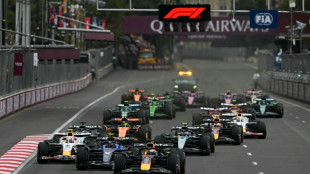 Three things we learned from the Azerbaijan Grand Prix
Three things we learned from the Azerbaijan Grand Prix
-
Spanish bank BBVA raises offer for rival Sabadell
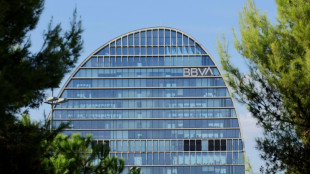
-
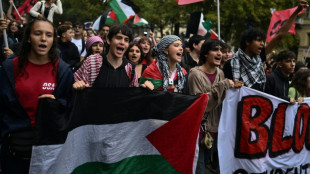 Tens of thousands join pro-Palestinian demos, strikes in Italy
Tens of thousands join pro-Palestinian demos, strikes in Italy
-
Man City's Silva fumes over lack of respect in schedule row
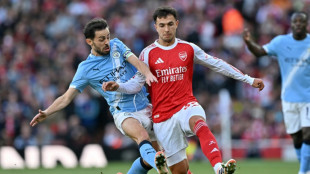
-
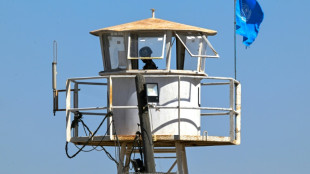 Israeli army operations stir fears in Syria's Quneitra
Israeli army operations stir fears in Syria's Quneitra
-
Chelsea's Palmer likely to avoid groin surgery: Maresca

-
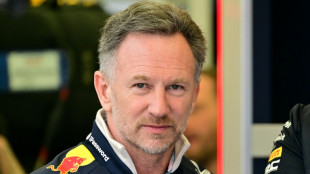 Horner formally leaves Red Bull after agreeing exit from F1 team
Horner formally leaves Red Bull after agreeing exit from F1 team
-
Newcastle sign Wales full-back Williams
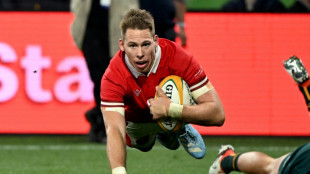

Morocco's Atlantic gambit: linking restive Sahel to ocean
A planned trade corridor linking the landlocked Sahel to the Atlantic is at the heart of an ambitious Moroccan project to tackle regional instability and consolidate its grip on disputed Western Sahara.
The "Atlantic Initiative" promises ocean access to Mali, Burkina Faso and Niger through a new $1.3-billion port in the former Spanish colony claimed by the pro-independence Polisario Front but largely controlled by Morocco.
But the project remains fraught with challenges at a time when military coups in the Sahel states have brought new leaderships to power intent on overturning longstanding political alignments following years of jihadist violence.
The Moroccan initiative aims to "substantially transform the economy of these countries" and "the region", said King Mohammed VI when announcing it in late 2023.
The "Dakhla Atlantic" port, scheduled for completion at El Argoub by 2028, also serves Rabat's goal of cementing its grip on Western Sahara after US President Donald Trump recognised its sovereignty over the territory in 2020.
Morocco's regional rival Algeria backs the Polisario but has seen its relations with Mali, Burkina Faso and Niger fray in recent months after the downing a Malian drone.
Military coups over the past five years have seen the three Sahel states pivot towards Russia in a bid to restore their sovereignty and control over natural resources after decades within the sphere of influence of their former colonial ruler France.
French troops were forced to abandon their bases in the three countries, ending their role in the fight against jihadists who have found sanctuary in the vast semi-arid region on the southern edge of the Sahara.
- 'Godsend' -
After both the African Union and West African bloc ECOWAS imposed economic sanctions on the new juntas, Morocco emerged as an early ally, with Niger calling the megaproject "a godsend".
"Morocco was one of the first countries where we found understanding at a time when ECOWAS and other countries were on the verge of waging war against us," Niger's Foreign Minister Bakary Yaou Sangare said in April during a visit to Rabat alongside his Malian and Burkinabe counterparts.
The Sahel countries established a bloc of their own -- the Alliance of Sahel States (AES) -- in September 2023 but have remained dependent on the ports of ECOWAS countries like Benin, Ghana, Ivory Coast and Togo.
Rising tensions with the West African bloc could restrict their access to those ports, boosting the appeal of the alternative trade outlet being offered by Rabat.
- 'Many steps to take' -
Morocco has been seeking to position itself as a middleman between Europe and the Sahel states, said Beatriz Mesa, a professor at the International University of Rabat.
With jihadist networks like Al-Qaeda and the Islamic State group striking ever deeper into sub-Saharan Africa, the security threat has intensified since the departure of French-led troops.
Morocco was now "profiting from these failures by placing itself as a reliable Global South partner", Mesa said.
Its initiative has won the backing of key actors including the United States, France and the Gulf Arab states, who could provide financial support, according to specialist journal Afrique(s) en mouvement.
But for now the proposed trade corridor is little more than an aspiration, with thousands of kilometres (many hundreds of miles) of desert road-building needed to turn it into a reality.
"There are still many steps to take," since a road and rail network "doesn't exist", said Seidik Abba, head of the Sahel-focused think tank CIRES.
Rida Lyammouri of the Policy Center for the New South said the road route from Morocco through Western Sahara to Mauritania is "almost complete", even though it has been targeted by Polisario fighters.
Abdelmalek Alaoui, head of the Moroccan Institute for Strategic Intelligence, said it could cost as much as $1 billion to build a land corridor through Mauritania, Mali and Niger all the way to Chad, 3,100 kilometres (1,900 miles) to the east.
And even if the construction work is completed, insecurity is likely to pose a persistent threat to the corridor's viability, he said.
D.Schlegel--VB
